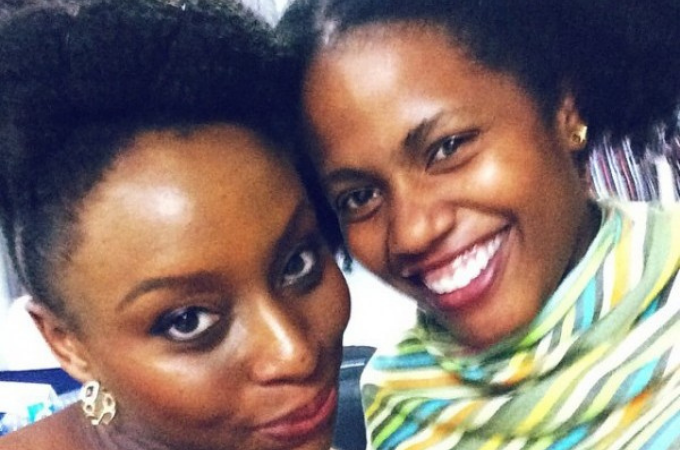
I became a fan of Chimamanda Ngozi Adichie only last year, on the abandoned dance floor of a gay club in Syracuse, with a music video DJ throwing up selections on the TV screens scattered between empty pink and blue strobe lights.
I had read all her books by then and I’d enjoyed them, although they didn’t resonate with me in the ways that my favorite art does. To me, her books were important reflections of pre-existing conditions—important because all of this needed to be seen and discussed, because representation must be full. If anyone ever asked me what it was like to be a Nigerian immigrant at the time that I moved to the States, I could hand them a copy of Americanah and say, ‘Just read this.’ That documentation, like that of the war, matters. I knew the content of her talks and the things she’d famously said in conversations with Nigerian journalists who never saw her coming. I admired the tightness of her writing, the way she spoke, the overall body of her work, and when ‘Flawless’ was released, I was excited to hear her voice on the track, a Nigerian woman, one of ours, my skin prickling at the simple power of what was being said and who was saying it.
I don’t know what was different about the dance floor. Perhaps because it was the first time I was hearing ‘Flawless’ in a context where I could connect to it with my body (dance is more important to me than most things, even writing). When the song came on, I bopped and curved my neck, putting my shoulders into the beat, slowly, side to side. Then there was that moment that stripped and distilled the sound, that threw me somewhere else. It lasted for a few seconds before Chimamanda’s voice came on and I disappeared into her throat. My skin lifted, currents spiking up behind my ears, across my skull, and along my arms. I danced with my eyes closed, with water burning behind them as I jumped on the stage and pumped my arms towards the wood floor, knees sinking, hair lashing down and down, over and over. I was in a strange ugly little town, many kilometers over land and water from where I was born. I was Igbo, daughter of the soil, born on the red, and here was this Igbo woman with her calm words radiating over large speakers as disco lights split across the white faces dotted around the bar. I kept my eyes closed in warm black and raised my arm, palm open and hailing, like she was gospel. In the curve of her voice, I was, unexpectedly, home.
This was last year. I had applied for her workshop and didn’t get in, so I applied again, because it was a simple application that didn’t cost anything. I sent in an excerpt of my novel. I got in. I hadn’t planned on getting in. I’d already accepted a summer residency in South Carolina, which I immediately postponed as I started a crowdfunding campaign so I could afford the plane ticket to Lagos. I named it ‘The Chimamanda Calls! Campaign’ and imagined myself hustling in response to the acceptance email signed in her name. In two hours, I had a third of the funding and in under a week, I had the full amount. People break my heart in the best ways. People also expressed online that they didn’t think I should’ve gotten into the workshop, and a commenter responded to one of these, saying ‘Abeg leave the poor girl alone, jo. She must think she isn’t that good to have applied. She wanted in bad enough, she got in. Congrats Akwaeke!’ I couldn’t help laughing because he was right. I’m good, but I’m definitely not good enough to ever stop learning. In a delightful twist of fate, it was one of those negative comments that directed a reader to my campaign and resulted in a substantial donation. I flew to Lagos.
I can’t hope to adequately recreate what it felt like to be there, but I will say this—I’ve been in a few workshops in the past year, with other international Black writers at the Callaloo Creative Writing Workshop, with my considerably whiter fellow MFA candidates, and with other African writers at the Caine Prize workshop earlier this year. But to be in Nigeria with twenty-five other Nigerian writers was a wholly different and freeing experience. The closer my workshop composition approaches my core culture, the more freely I write. There was so much I could leave implicit in my work because I knew it would be understood, more so when I accounted for how many feminists were in the workshop and how many people there were not straight. It was clarifying, a reminder of how I should be writing, without a mask.
On the last day, we stayed back and spent hours chatting with Chimamanda, explaining the concept of shade and reenacting the top moments in which she threw it, teasing each other about crushes, and somewhere in all of that, I told her that I hadn’t expected her to have as much fun as she did. I don’t think I’d expected to have as much fun myself, either. My favorite thing about my fellow workshop participants was that, my God, they were funny. They dropped one liners that made everyone fall out in glee, they wrote dialogue that reduced us to helpless teary laughter, they reminded me that we Nigerians have the best wit and humor ever. Fight me on this. In between the laughter, our discussions around each other’s writing broadened out into larger discussions, about depression, marital abuse and the responsibility of writing African stories. I noticed how we conversed in narrative, making our points by launching into storytelling. The dialogue swung to 50 Shades of Grey, Rachel Dolezal, and then Caitlyn Jenner, at which point some participants started sharing transphobic viewpoints, casual remarks that I flinched from. I didn’t have the mouth to explain that words like that are steeped in the blood of trans women murdered because other people thought what they did—that they were men, not women, and killed them for it. I stepped outside the room a lot during that session.
We spent three delicious days with Chimamanda before Aslak Sira Myhre flew in and took over, taking us through non-fiction and showing a dry humor we hadn’t expected, which delighted us. He taught us with engaging eloquence and I was sadder than I thought I’d be when he left. Aslak was replaced by Binyavanga Wainana, whose memoir ‘One Day I Will Write About This Place’ had stunned me when I read it a few months before sending in my application. I was working on the first draft of my novel at the time, an ogbanje memoir, and I’d been struggling with writing about my life from the perspective of a spirit, of conveying what was real while worrying that it would be dismissed as African magical realism. When I read Binyavanga’s book, it felt like the first time I was reading anything by an African writer that was a nonfictional depiction of what it was like to have a mind that existed separately from the commonly acknowledged realities. I read it and thought- ah, he’s one of us. One foot here, one foot there (you know where). We can smell each other.
He took us through the remaining days, speaking in bright flowing loops and sliding in sharp exaggerated humor that got you in the ribs, then we closed out the workshop with Chimamanda again. On the first day of the workshop, I’d received minimal feedback, which bothered me enough that I brought it up. Afterwards, I texted a writer friend of mine. ‘I care a lot more about Chimamanda’s opinion than I thought I would,’ I told her, adding three monkey face emoji hiding behind their hands. ‘Because she’s a really good writer,’ my friend replied, matter of fact. ‘I would totally care about her response.’ When we workshopped a short nonfiction piece I’d written the next day, Chimamanda insisted I expand it into something longer and in that breath, I felt a surge of relief. I knew where I stood with my fiction, I’d had people affirm me in ways that fueled me with their belief till I developed mine, but my nonfiction was new and unfooted. By the time the workshop ended, I knew what next I needed to write about and how. I had the clarity in my work that I’m always looking for, because it makes everything moving forward so easy.
All I have to do now is write.
Many heartfelt thanks go to Iroweghi, Mary, Painter M., Bukola, Aina, Allison, Ravi, Junior, Frances, Kameelah, Keondra, Olamide, Annette, Isaac, Jara, Morenikeji, Chi., Vic., Miss O., Rudy J., and Melle. I literally could not have experienced this without you. Thank you for believing.


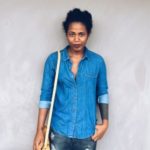

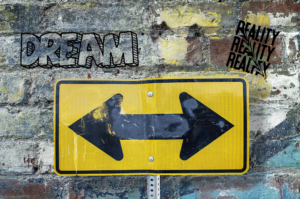
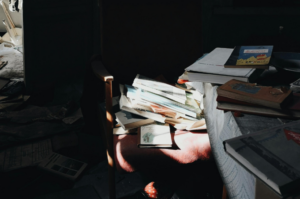
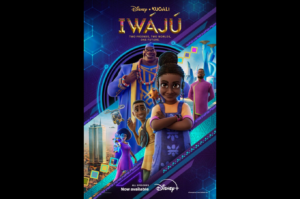
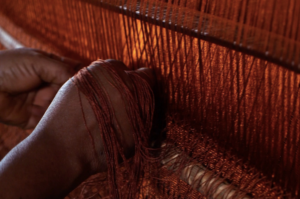
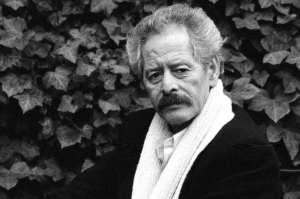

Akwaeke Emezi, Writer and Artist - New York Digital Magazine May 19, 2022 07:04
[…] writing didn’t quite resonate — they were primarily excited to work with the gay Kenyan writer Binyavanga Wainaina, who was also teaching that year. Even so, for a generation of young Nigerian writers, Adichie had […]